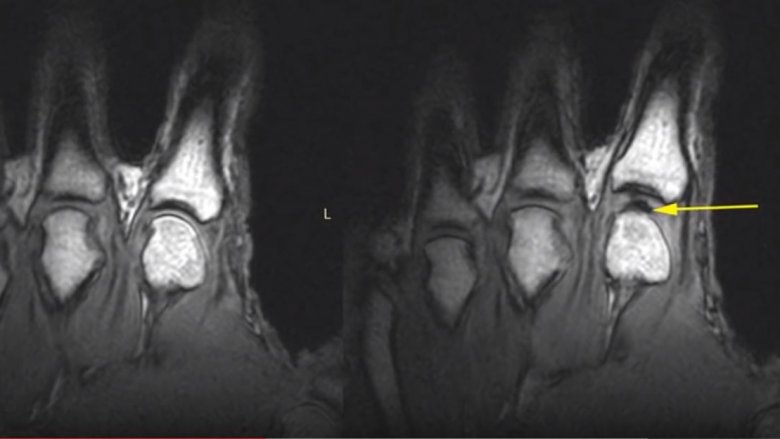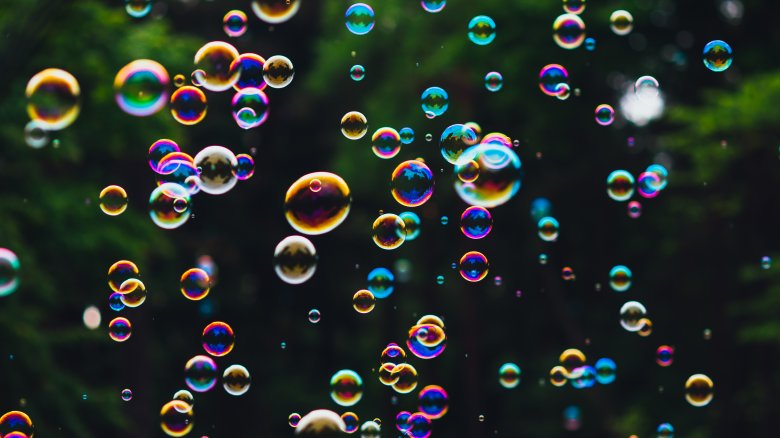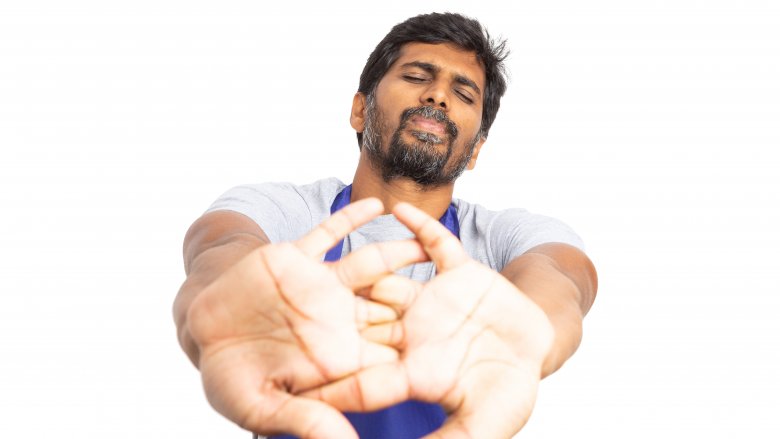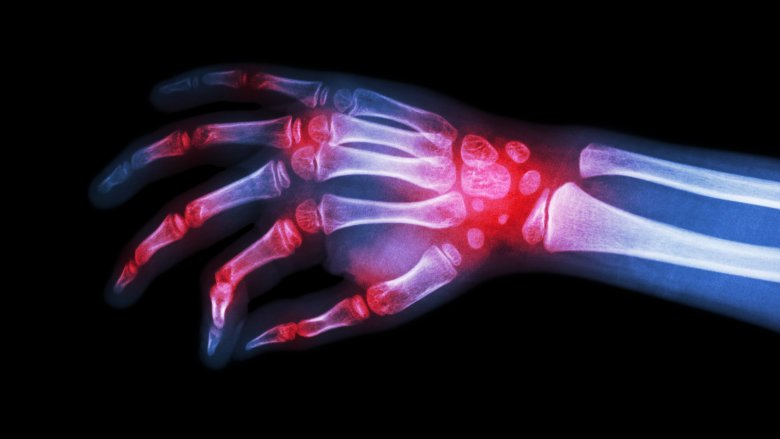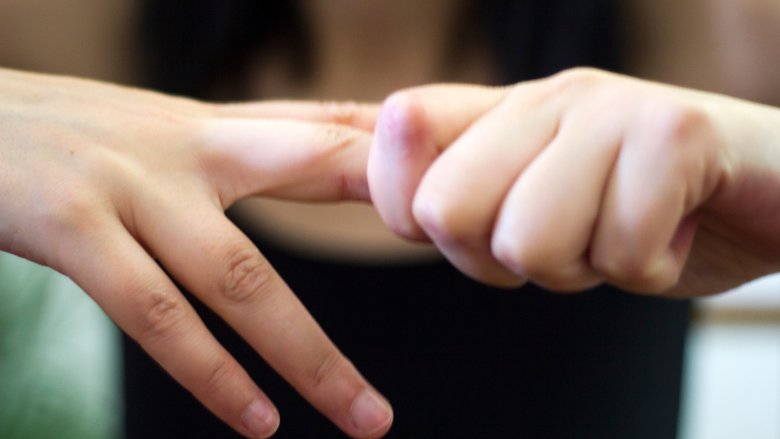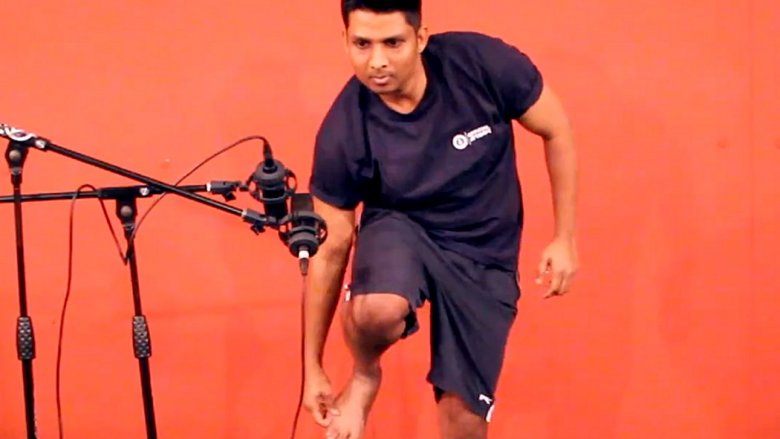What Really Happens When You Crack Your Joints
In life, there are two kinds of people: those who crack their knuckles, and those who hate them for it.
If you're on the knuckle-popping side of the equation, there are few things in life as instantly rewarding as the slight push, the satisfying pop, and the feeling of release. Pop 'em first thing in the morning, pop 'em after a heavy workout, or pop 'em as you lie down: No matter when you crack those things, it always feels good ... well, other than having to deal with the aggravated groans of your partner, who probably keeps earplugs beside the bed as a coping mechanism. Regardless of whether you're a cracking fan or a cracking hater, everyone wonders whether such a weird habit can really be good for your body. Some people say it's an easy way to get arthritis, while others tell you it's just a gas bubble, and there's always that underlying fear that one day you'll crack it too far, breaking your finger. What's the truth?
When two bones separate...
When you pop a joint, that oh-so-satisfying crack sure sounds like bone-against-bone. That's why it's so hard to believe the gas bubble theory you hear somewhere, particularly when you're woken up at 2 a.m. by your partner cracking their toe. The exact cause of the sound is still debated today. However, Scientific American reports that while the gas bubble thing is a little oversimplified, it's basically accurate. See, if you were to poke around between two connecting bones, like your knuckles, you'd find cartilage surfaces, and between them is something called a joint capsule, which contains a lubricant known as synovial fluid. Whoa, that's enough jargon for the bridge of the Enterprise! Okay, think of synovial fluid as functioning similar to how oil lubricates certain parts of your car, and you'll get the basic idea. This juicy stuff also feeds delicious nutrients to the surrounding cells, keeps the joint cartilage nice and strong, and contains gases such as nitrogen, carbon dioxide, and oxygen.
Following so far? Cool. Now, pop your finger. Seriously, go ahead. (Do it like a normal person; don't break your hand.) What you've done, if you did it like a normal person, is pull open the joint capsule — stretching it out — causing that little bundle of synovial fluid to come rushing out. No damage because the joint snaps back, and the fluid all flows back into place after a little while. This part of the process is easy to see, since it appears on X-rays. But what part creates the sound?
Bubble pop, or gas expansion?
Just like how some people debate whether cracking your knuckles is a nice stress release while others think it's the most annoying habit ever, Quartz says researchers have spent decades arguing over what causes the world's most polarizing sound effect. Hey, did you just mock that debate? Fine, just go ahead and pretend you didn't get fiercely engaged in that ridiculously dumb internet "discussion" about Spider-Man's organic webshooters back in 2001.
In general, the most accepted theory has been that the crack sound emanates from the sound of the synovial gas bubble exploding. Pop! But then in 2015, a University of Alberta study had someone stick their hands inside an MRI machine and came to a rather odd conclusion: they found that the noise was not the result of the bubble popping, but rather, it was caused by the sudden formation of the cavity, as the gas expands. A few years later, Professor Abdul Barakat examined the issue a little deeper, according to the Guardian, as he and a student actually developed a mathematical model that explained that the sound was, once again, from a bubble collapse. See, math solves everything. As for why joint-popping action tends to leave little micro-bubbles in its wake, Barakat argued that only a partial bubble collapse was necessary to produce the sound. So far, this is the leading theory.
Why does it feel so good?
If you think that cracking your joints isn't addictive, try doing it for a day and then try stopping. Yeah, no dice. (Come on in, the water's fine.) The reason it feels so wonderfully satisfying, according to Dr. Robert Boutin of the University of California, is because it's a relief of pressure. By popping your finger, you break the seal, releasing all the gas built up in your synovial fluid. Like it or not, it's awfully similar to flatulence, and often engenders the same reaction in polite company.
Now, fingers and toes are one thing, but if you get hooked on cracking bigger joints like your back or hips — or feel like you need to crack them just to feel normal — Insider says it might be a sign of a bigger problem. Frequent discomfort, tightness, or improper mobility in a joint means something is up with the joint, and while cracking it might cause temporary relief, it doesn't address the root problem. Those looking for a more long-lasting solution for a problem area would be advised to do more stretching or practice better posture.
Why do you have to wait before cracking the same joint again?
While the thought that you have bubbles in your knuckles is bizarre enough to make you wonder what other strange things might be going on in your body, it's important to note that these bubbles aren't quite like the ones you see in the kitchen sink. They don't have lasagna leftovers in them, for one, and also the Atlantic says the bubbles aren't formed by air so much as cavitation — what happens when bones separate and the negative pressure stretches out the synovial fluid.
Cracking your knuckles releases gases, and while the popping noise might be instant, it takes a bit longer for the gases to squeeze back into their original box. Once the gases have done so, however long that might take, you can crack the same knuckles again. Kind of like how misbehaving children will stop when you catch them and then get mischievous again before too long.
Wait, does it really cause arthritis?
Ever since the first time you cracked your thumbs in the family living room at age 7 and cranky old Uncle Freddy told you you were going to give yourself arthritis if you kept it up, you've probably maintained at least a medium level of concern over this lifelong enterprise. After all, if everyone says the sound of you loudly "cracking" your finger bones is dangerous, could they all be wrong? The weirdness of the gas bubble thing doesn't ease matters much.
Here's the good news: Your cranky uncle doesn't know what he's talking about. Just ask Dr. Donald Unger, according to Popular Science. As a boy, Unger was so annoyed by the stern admonishments of his family members regarding the great arthritis threat that he spent the next 50 years never cracking the knuckles on his right hand, while cracking the ones on his left at least twice a day. At the dawn of the new century, Unger proved that his decades of cracking had caused no noticeable differences between his hands, and no arthritis to speak of. For these triumphant efforts in breaking old myths, Live Science reported that he received an "Ig Nobel" Prize. Good stuff, doc.
Awesome as Unger's proof might be, more properly scientific experiments have been done since and have gotten the same general result. A 2010 study X-rayed the hands of 200 people, both knuckle crackers and non-crackers alike, and found no heightened risk of arthritis whatsoever.
In fact, cracking knuckles might actually be good for you
None of this answers the question of why humans feel compelled to crack their bones in the first place. The jury's still out on that one, but scientist Greg Kawchuk has speculated that since cracking one's knuckles isn't possible without proper joint alignment, enough synovial fluid, and so on, this annoying habit might actually be a sign of joint health. Yay! Meanwhile, the Washington Post writes that when a joint cracks, that area's range of motion suddenly gets way more flexible.
That loud noise you're hearing? It's the sound of a thousand knuckle-cracking enthusiasts simultaneously popping their middle fingers at everyone who ever told them it was harmful.
That said, while it seems pretty definite that cracking one's knuckles doesn't pose any major risks — as long as it it doesn't hurt when you do it — the subject does still necessitate more research. In one 1990 study of 300 people, for example, Vox reports that a potential connection was found between frequent, long-term knuckle cracking and hand swelling, as well as decreased grip strength. No follow-up research was done on this point, though, and further studies have (so far) not reached the same conclusion. So if you've been cracking your hands for 40 years and never noticed any swelling or pain, you're probably okay.
Not everybody can pop their joints
If you're one of those poor, unfortunate souls who has never been able to crack your joints, then all these knuckle-popping shenanigans must seem inane at best and nightmarish at worst. If your best attempts at cracking simply ain't working, though, the Guardian says you should just give up, as it's probably a sign that your bones are built differently from people who crack easily. For example, the spacing between your knuckles might be too wide to get that crack without extreme effort.
Trying too hard to force a crack is not a good idea, by the way. As Women's Health explains, while it seems likely that every person alive can — with enough strenuous effort — make it happen, such efforts can put too much pressure on the joints, and real people have legitimately ripped up their tendons this way. And you know what sucks even more than a finger that won't crack easily? A broken finger. Keep it safe, everybody.
Not all cracks are good cracks
In the X-Men movies, you know that Hugh Jackman's Wolverine is about to go berserk when he cracks his adamantium-laced neck, right before popping his claws out. Badass as this gesture might be, don't forget that Logan has the power to heal from any wound. And while cracking your knuckles is totally cool, not every body part is so safe to mess around with.
If you're not trained on the proper way to crack your neck (i.e., if you're not a licensed chiropractor), you probably shouldn't do it. Why? Because in 2011, a 42-year-old woman who had been cracking her own neck every day for eight years got vertebral artery dissection, or VAD, which is a leading cause of stroke in patients under 45. Yikes. It isn't entirely clear whether there was a direct relationship between the neck-cracking and the bad thing, but your neck is super-important and you should probably not mess with it. Another problem area, when it comes to cracking, is your spine. According to Bustle, carelessly cracking your back, or someone else's, can result in conditions such as a misaligned spine, pulled muscles, hypermobility, nerve irritation, and overstretched ligaments, particularly if you already have back ailments to begin with ... which you probably do if you're feeling like you desperately need to crack your back.
So yes, crack your knuckles all you want, without fear or worry. When it comes to the bigger joints, though, please seek a professional so you don't give yourself a stroke.
Why do joints get noisier as you age?
When you're a little bouncy young'un, carefree and wild, your joints never seem to pop. When you get a little older, they pop when you want them to. As the years go on, though, the pops start to get increasingly frequent, to the point where even simple actions like standing up or yawning can cause your skeleton to crackle like it's wrapped in bubble wrap. This can be a little disconcerting, to say the least.
Don't worry, though, because according to the Cleveland Clinic, it's a relatively normal part of aging. As you get older, the cartilage on your bones wears away, resulting in rougher surfaces that make more noise when they grind together. Not a big deal, but if the sensation is ever painful or uncomfortable or if repetitive motions like push-ups cause a soft snapping sound every time you bend a particular muscle, the best way to loosen everything up is — you guessed it — more movement, stretching, and exercise. The more you shake yourself around like you did when you were younger, the more your joints are able to lubricate themselves, and hopefully be less noisy.
Next level cracking
If you crack your joints, someone at some point in your life has told you to quit. Next time they do, tell them all about a British guy named Kalai Selven Kali Shanmugham, the Guiness World Record holder for the most joints cracked continuously due to his ability to crack 32 joints in one session. That's a synovial fluid rock song, right there!
Shanmugham is able to crack seemingly every bone in his body that you can think of, from all the different parts of his hands, to his hips, to his elbows, in less time than it takes you to fry an egg. When he's not making world records, he claims to use his advanced cracking abilities mainly as a stress relief valve. He says he's never experienced any degree of pain and discomfort while doing these motions, which is good because one imagines he probably gets asked to repeat the cracking train at every party. Before Shanmugham earned the top spot, the previous record holder was James Syiemiong from India, who in 2003 was able to crack 26 bones continuously.
There's probably someone out there, at this moment, trying to find a way to crack 37 or 40 bones and nab the record, and good for them. As for most of you, though? Please just stick to your knuckles unless you have professional assistance.

